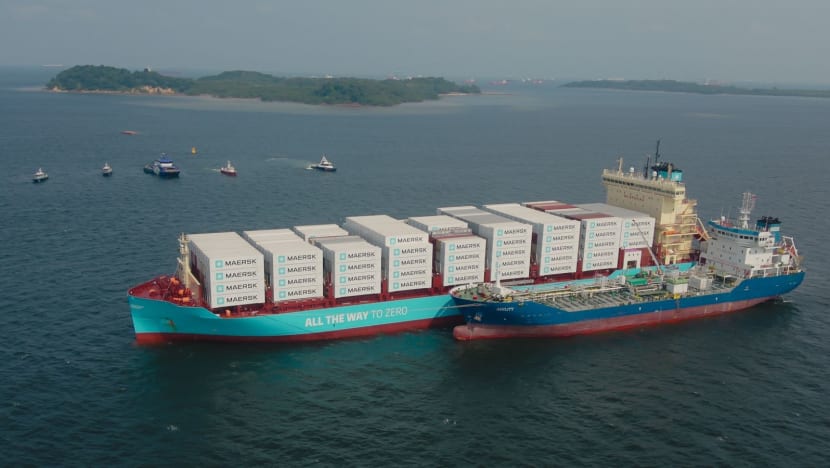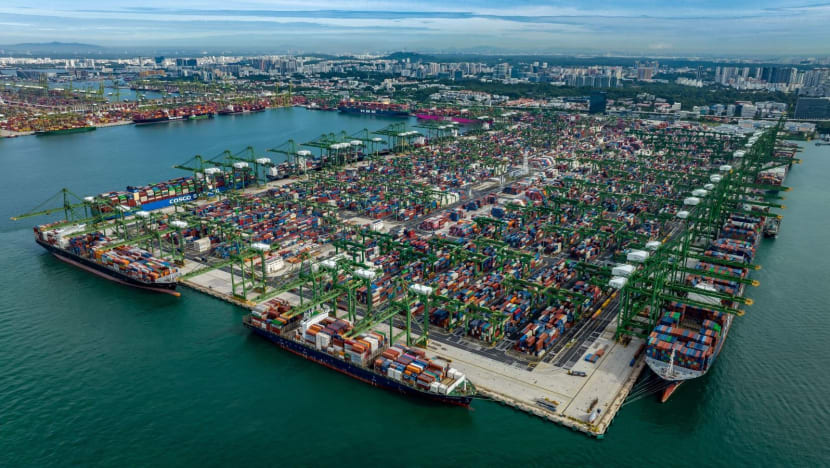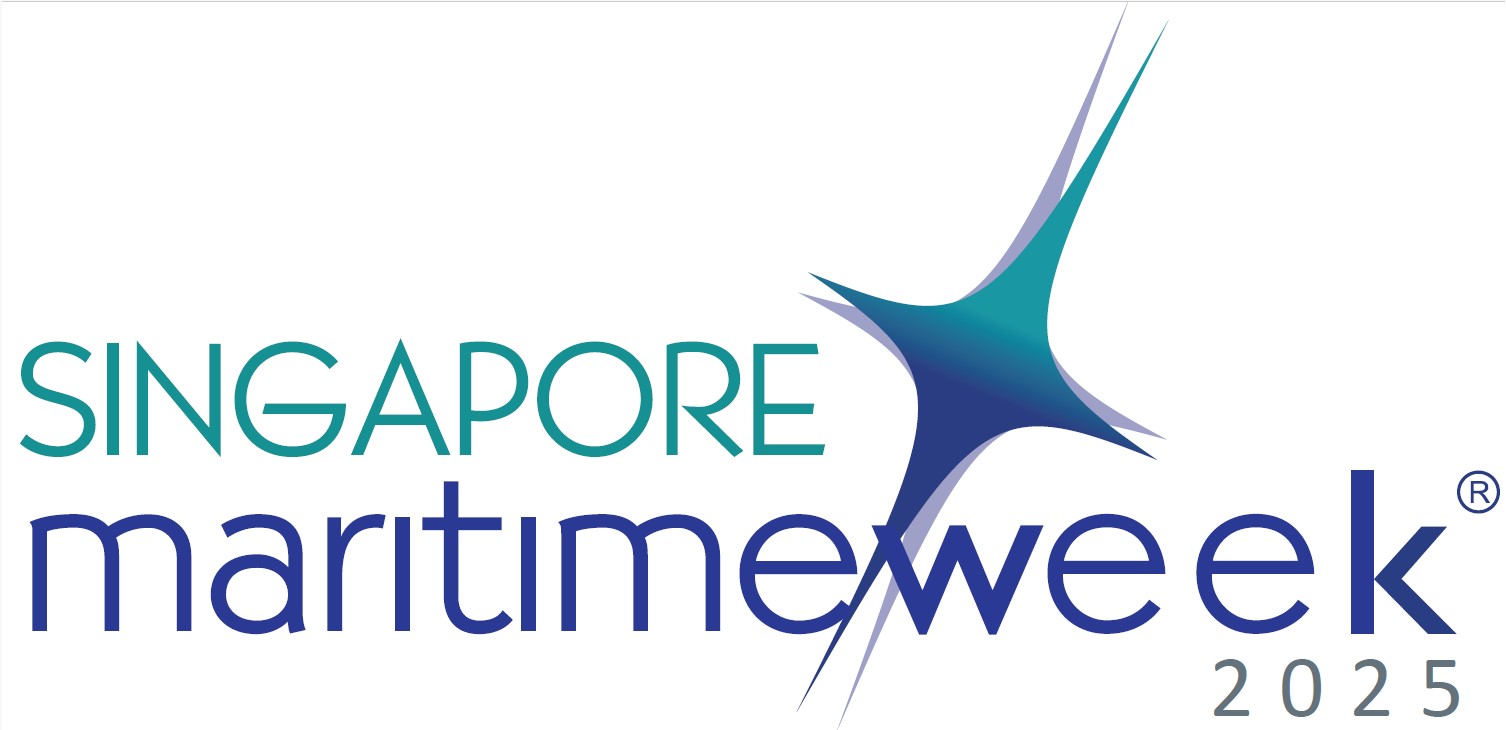Charting new waters for maritime Singapore
Singapore’s maritime industry is steering towards a future of sustainability, innovation and talent development, seizing new opportunities to drive growth and resilience.

Singapore, one of the world’s busiest ports, sees vessels arriving or departing every two to three minutes. Photos: Maritime and Port Authority of Singapore

This audio is generated by an AI tool.
In Singapore, a groundbreaking endeavour is shaping the future of sustainable energy in international shipping: The use of alternative fuels like methanol and ammonia.
Singapore has been paving the way for the maritime industry’s safe and efficient transition to sustainable alternative fuels. In July 2023, the Maritime and Port Authority of Singapore (MPA) and its partners achieved a milestone with the world’s first ship-to-container ship methanol bunkering operation. This was followed by another landmark achievement in March 2024 – the world’s first trial of ammonia as a marine fuel.
“Singapore has long been open to ideas from around the world and is willing to experiment to see what works. This strength is particularly relevant in emerging areas like decarbonisation and digitalisation,” said Mr Andreas Sohmen-Pao, chairman of maritime organisation BW Group and former chairman of the Singapore Maritime Foundation.
Singapore Maritime Week is a key platform for global industry leaders and government representatives to drive maritime innovation and progress. Video: MPA
WHERE ACTIONS MEET AMBITION
Cutting-edge maritime innovations will be in the spotlight at the annual Singapore Maritime Week (SMW), taking place from Mar 24 to Mar 28. The event will bring together 20,000 industry leaders and government representatives from nearly 80 countries. Since its inception in 2006, SMW has been a key platform for Singapore to drive industry advancements.
“Ensuring the Straits of Malacca and Singapore – one of the world’s busiest waterways – remains open and safe is one of Singapore’s largest contributions to the maritime sector,” said Mr Francis Zachariae, secretary-general of the International Organization for Marine Aids to Navigation (IALA). “Singapore is always at the forefront of innovation and digitalisation, consistently investing in a wide range of forward-thinking projects.”
SMARTER, SAFER, GREENER SHIPPING
In October 2023, MPA launched the Just-In-Time Platform to help vessels plan their arrivals with real-time information. By synchronising port readiness with ship schedules, the platform enables vessels to maintain a steady speed at sea, reducing fuel consumption and emissions.
MPA has also developed the artificial intelligence (AI)-enabled Next Generation Vessel Traffic Management System. Using smart algorithms, sensors and decision support tools, the system predicts traffic hotspots and prevents potential collisions.
As a leading transhipment hub, Singapore is well positioned to drive the development of green and digital shipping corridors (GDSCs) in collaboration with like-minded partners. These GDSCs serve as dedicated routes to pilot green and digital projects that support efficient and sustainable shipping. As of March 2025, Singapore has eight GDSCs with ports in Australia, China, Japan, the Netherlands and the United States.
NURTURING MARITIME TRAILBLAZERS
Mr Sohmen-Pao highlighted that Singapore’s maritime transformation extends beyond its port authority, crediting its “fantastic ecosystem of maritime players” for fostering a dynamic and collaborative business environment.
PIER71 was established in 2018 by MPA and the entrepreneurial arm of the National University of Singapore, NUS Enterprise. PIER71 aims to create a community of maritime start-ups, corporates, mentors and partners to accelerate innovation in the industry. Since its inception, these start-ups have raised more than S$100 million in investments from venture capitalists and over 27 technologies have been successfully deployed in the industry.
One such start-up, PortCast, developed an AI-driven solution that has enabled more than 50 global shipping companies to make informed decisions about cargo movement, saving both time and money.
Another start-up, GreenCOP, developed a technology to transform agricultural waste into clean fuel for ships. Founded by researchers from NUS, GreenCOP’s pilot plant in Malaysia is set to begin supplying eco-friendly fuel to vessels later this year.
Efforts are also underway to upskill the maritime workforce for a greener future. The Maritime Energy Training Facility is equipping seafarers and maritime personnel with the skills to operate vessels powered by alternative fuels. Through hands-on training courses, participants will learn how to handle fuels like methanol and ammonia safely and efficiently.

COMMITMENT TO INTERNATIONAL COLLABORATION
Underpinning these forward-looking initiatives is Singapore’s continued dedication to global partnerships.
“Singapore’s commitment to intergovernmental collaboration is key to successfully digitalising the maritime sector, as global, harmonised solutions are essential for improving safety and efficiency,” Mr Zachariae said.
Singapore contributed to the adoption of the United Nations Convention on the Law of the Sea (UNCLOS) in 1982, a framework that upholds a rules-based international order for all maritime activities. More recently, Singapore led the negotiations of the newly established UNCLOS Biodiversity Beyond National Jurisdictions Agreement, which focuses on the conservation of marine biodiversity.
In February 2025, Singapore hosted the inaugural IALA General Assembly, where the country was re-elected to the IALA Council for the term 2025 to 2027.
NAVIGATING THE NEXT FRONTIER
From its early trading roots in the 1300s, Singapore has grown into one of the world’s leading maritime hubs. As the nation marks its 60th year of independence, its port now connects to over 600 ports worldwide.
Amid strong competition and an uncertain outlook, Mr Murali Pillai, Minister of State for the Ministry of Law and Ministry of Transport, said: “Singapore will not rest on our laurels. As a global maritime hub, we will continue to contribute to the advancement of maritime technological innovation, decarbonisation and talent development, and deepen our connection to the world.”
For more information, visit the Singapore Maritime Week website.













